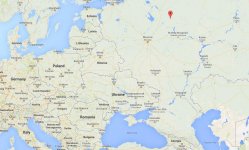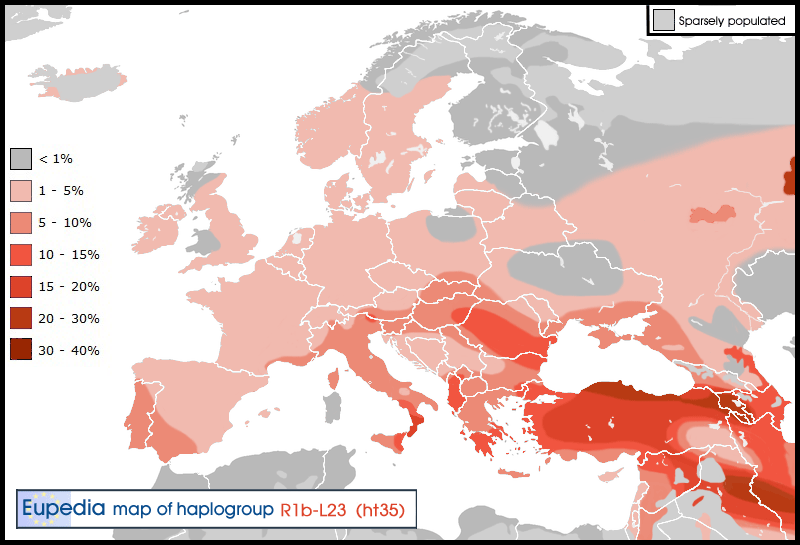As for Wikipedia, it's only as good as the individual who wrote or revised a particular passage. It does mention supposed migrations after the Black Death as possibly having an influence on the Great Vowel Shift, but without explaining why or how, and without referring to those migrations as coming from "less Germanic" parts of Britain - that part was your imagination at work.
In fact, the Wikipedia article mentions migrations into "southeast England", and that are has been the traditional focus of Germanic, especially Saxon settlement, as the respective county names are demonstrating. The conclusion that the migration sources were "less Germanic" was obvious to me.
As to the underlying mechanisms, the article indeed fails to describe the underlying pattern. So I have looked a bit more into the effects of the Black Death. It is undisputed that it caused a major population decline in England, but authors differ on the magnitude. Estimates vary between 30% and 60% population loss. A recent study (link at the end of this post) puts it at 46% during the initial wave (from 4.8 millions in 1348 down to 2.6 millions in 1351), and further 15% during re-appearances over the next century, until the population number bottomed out at 1.9 millions by 1450.
One effect was the collapse of the traditional manor system and the end of serfdom that accompanied it. The rural population gained the possibility to migrate, as the manor lords had either died, or lacked the means to enforce mobility restrictions, or - facing labour scarcity but posessing well arable land - actively pressed for overcoming mobility restrictions that tied farmers to less productive lands elsewhere.
Secondly, for the scarcity of labour, wages increased immediately and massively - documented for unskilled construction workers, but probably also taking place with most urban wages. Even the introduction of legal wage controls could not prevent further wage increases until 1450. One source has the wage index (1700=100) increasing from around 40 before the Black Death to 80 in the 1370s, and 110 by 1420.
Both factors are assumed to have resulted in substantial migrations - from less productive land (primarily in the North) to more productive land in the south-west, and into the cities (especially London, but also Chester, Sheffield, and mines and ports in Devon and Cornwall).
The reality is that, as the capital and largest city of England, London has always been a magnet for ambitious people from elsewhere. However, during most of the period in question, the vast majority of migrants would have been from somewhere in southern or eastern England where accents and dialects would have been more "Germanic" than in the capital, where Anglo-Norman influence was strong.
Yes and no - there is county populations data and estimates available. Taking Middlesex as a proxy for London, from 1089 to 1290, its population grew by 0.33% per year, which was below the English average of 0.5%. From 1377 to 1600, i.e. after the Black Death, the growth rate was 0.68% per year, three times the English average of 0.22%. In absolute figures, Middlesex gained 40.000 inhabitants (1.1% of England's total population gain) between 1089 and 1290. Between 1377 and 1600, it was 220,000 people, 15% of England's population gain. This demonstrates that mobility increased substantially after the Black Death. The next highest absolute population gains during the 1377 to 1600 period occurred in Devon (170.000 people, 11%), Yorkshire - especially the Western Riding - (130,000 people, 8%), Somerset (70,000 people, 4.5%), Essex (60,000 people, 3%), Surrey (50,000 people, 3%), Cheshire (47,000 people, 3%) and Kent (45,000 people, 3%). The South-East (Essex, Middlesex, Sussex, Surrey, Kent) together gained 410,000 people between 1377 and 1600- more than a quarter of England's total population gain. Cornwall, Devon and Somerset together account for some 300,000 people (19 %).
Population growth below average or even stagnation / decline, which indicates likely migration sources, occurred in a south-westerly bent quadrangle between North Yorkshire and Suffolk to the East, and Gloucesterhire and Dorset to the West. As such, you appear to be right that much of the migration into London came from Eastern England, and especially East Anglia. But Western England, especially Gloucestershire and Warwickshire, also were outmigration regions, and I suppose the trend did not stop at the English-Welsh border.
Before drawing conclusions, it is also useful to look at 1290-1377 trends, which, in addition to several outbreaks of the Black Death, also capture the impact of the Great Famine of 1315-1317 that is estimated to have killed 12% of the English population. Migration to cities may already have picked up during this period, but this is probably being more than made up for by higher urban mortality rates during Black Death epidemics. The English population nearly halved over this period, but there was significant regional difference. Hardest hit, losing over half of their population, were (I) East Anglia, Cambridgeshire, Lincolnshire, Hartfordshire, Huntingdonshire (ii) North England (Cumberland, Northumberland, Durham, Westmoreland, North Yorkshire), and (iii) West England (Shropshire & Herefordshire). In absolute figures, the biggest population losses occurred in Norfolk (310,000 people), Lincolnshire (195,000), Northumberland (120,000), Suffolk (110,000), North Yorkshire (90,000), Cambridgeshire (85,000), Northamptonshire (80,000), Gloucestershire (70,000) and Shropshire (65,000). In Northumberland, the population decreased by nearly 80%, in Norfolk and Cambridgeshire by more than 60%. This implies, among others, that there wasn't so many Anglo-Saxons from East England left to migrate to London, and immigrants to South-West England must also have come from elsewhere.
The Great Vowel Shift was already well underway before London began to receive significant immigration from western England, Wales, Scotland or Ireland. And, as you mentioned, the all-knowing Wikipedia does mention that a somewhat similar vowel shift occurred among Germanic speakers at about the same time, making it less likely that the Great Vowel Shift resulted from England somehow becoming less Germanic during the period when the influence of Latin and Norman French was waning. I prefer the explanation that such changes occurred because Germanic languages had contained some unstable vowel sounds. However, I could be wrong - I'm no linguist. Obviously, neither are you. And as for the "substratum" guess, I'd remind you that English and Gaelic are both IE languages.
You are missing the point here. Half of the vowel shifts found in English occurred in High German, but neither in Dutch, nor Low German, nor Danish. In other words - the Germanic vowel system was stable enough to be maintained by all the languages spoken in areas from where substantial migration into England occurred. If we are talking internal instability, at least one of those languages should have participated in the "u"->"ou"/"au", "i"->"ei", and "o"/"oo"->"u" shifts that took place in England and in Southern Germany. So, probably, London was repopulated after the Black Death by substantial immigration from Bavaria (this would also explain the use of "boy"="Bube", and English preference for sausages and mashed potatoes). Somehow, however, that immigration has so far been overlooked by historians.
Oh, wait - there has in fact been migration from Southern Germany into England, namely by the Brigantes
http://en.wikipedia.org/wiki/Brigantes. But that was a Celtic migration, so its irrelevant here..
All data is from here (nice maps in the Annex)
http://www.lse.ac.uk/economichistory/pdf/broadberry/medievalpopulation.pdf



